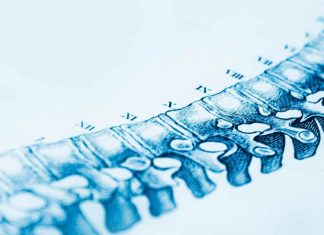How many times have you heard someone say, “I have a pinched nerve in my neck and I have to have surgery.” There are certainly cases where surgery is required, but surgery should ONLY be considered after ALL non-surgical treatment approaches have been tried first (and they have failed). Paul C. McAfee, MD states that “lumbar spine fusion surgery is generally not recommended until a patient has tried 6 to 12 months of adequate non-surgical care.” It is alarming to me how many cases of surgical radiculopathy (a “pinched nerve”) end up being surgically treated with NO trial of non-surgical care. Hence, this blog post will focus on research that clearly demonstrates that neck surgery does not improve the long-term outcomes of patients with chronic neck pain.

Neck surgery creates permanent impairment of motion.
Chronic Neck Pain
Chronic neck pain is, by definition, neck pain that has been present for a minimum of three months. This category of neck pain is very well represented, since many of the neck pain sufferers that I see have had their neck pain “for years,” or at least longer than three months. Depending upon the intensity of pain and its effect on a person’s ability to go about their daily activities, many people with chronic neck pain will ask their primary care doctor, “Is there anything surgically that can be done?” The desire for a “quick fix” is the common focus for those suffering with neck pain.Unfortunately, according to recent studies there may not be a quick fix, or at least surgery is NOT the answer.
The Evidence
The December 2012 issue of The European Spine Journal reports that spine surgery did not improve the outcomes for patients with chronic neck pain. They additionally pointed to other studies that revealed some very strong reasons NOT to have spine surgery unless every other conservative attempt to control pain had failed. One reason was a higher hospital re-admission rate after spine surgery. Another was that most studies on surgical vs. conservative care showed a high risk of bias, suggesting the research on surgical intervention was biased in the research approach used. They further reported, “The benefit of surgery over conservative care is not clearly demonstrated.” It is important to point out to you, the reader, that the research analyzed studies that included patients with and without something called radiculopathy (radiating arm pain/numbness or tingling from a pinched nerve), and myelopathy (people suffering from irritation of the spinal cord creating pain, numbness, weakness in the legs, and potentially bowel and bladder dysfunction).
In February of 2008, the Neck Pain Task Force published overwhelming evidence that research supports the use of cervical spine manipulation (adjustments) in the treatment of both acute and chronic neck pain with or without radiculopathy. And another author (Bronfort) published similar findings in 2010 in a large United Kingdom-based study that looked at the published evidence supporting different types of treatment for various conditions. They found cervical spine adjustments were effective for neck pain of ANY duration (acute or chronic).
Source:








